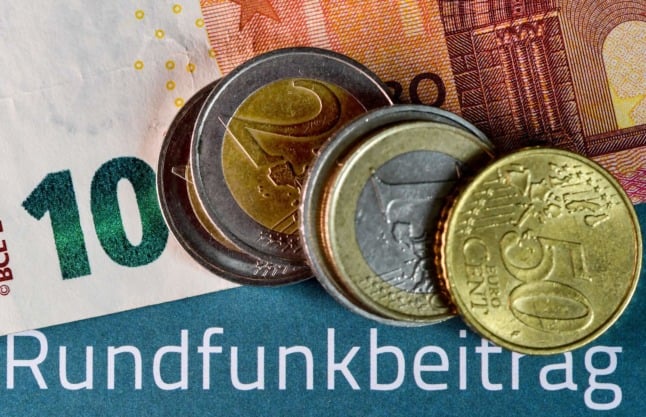Earlier in August, the Federal constitutional court ordered an 86-cent increase in the licence fee or Rundfunkbeitrag – and on Wednesday it was confirmed that the new amount will be collected from this month onwards.
It means that residents will have to fork out €18.36 per month instead of the current €17.50. It’s the first time that the fee has gone up since 2009.
All households in the country are required to contribute to the German TV tax.
The ‘per household’ element is important to remember, as you pay per ‘Wohnung’ rather than per resident or even per television. But there are no discounts if you live alone.
In 2020 all states except the eastern region of Saxony-Anhalt had agreed to increase the fee, sparking a savage row that lasted months.
It culminated in the constitutional court ruling that a single federal state cannot hold back broadcasters from increasing the fee. The court said the state “violated the freedom of public broadcasters”.
- Germany set to raise TV tax by 86 cents after court ruling
- How to pay Germany’s TV tax (or legally avoid it)
The complaint was brought to the highest court in the land by the public broadcasters ARD, ZDF and Deutschlandradio. The Beitragsservice, which is responsible for coordinating the payments, said that the new amount will be collected from August.
The service said it would inform most people about the increase in the ‘tax’, but it could depend on people’s chosen payment method. Those who transfer the money will receive a letter asking them to pay the higher amount.
Those who have arranged for the broadcasting fee to be transferred by direct debit will have the higher amount adjusted automatically.
The broadcasting fee is the main source of income for public broadcasters in Germany.
Vocabulary
Increase – (die) Erhöhung
Federal constitutional court – (das) Bundesverfassungsgericht
Direct debit – (das) Lastschriftverfahren
Adjusted – angepasst
We’re aiming to help our readers improve their German by translating vocabulary from some of our news stories. Did you find this article useful? Let us know by emailing [email protected].




 Please whitelist us to continue reading.
Please whitelist us to continue reading.
Member comments